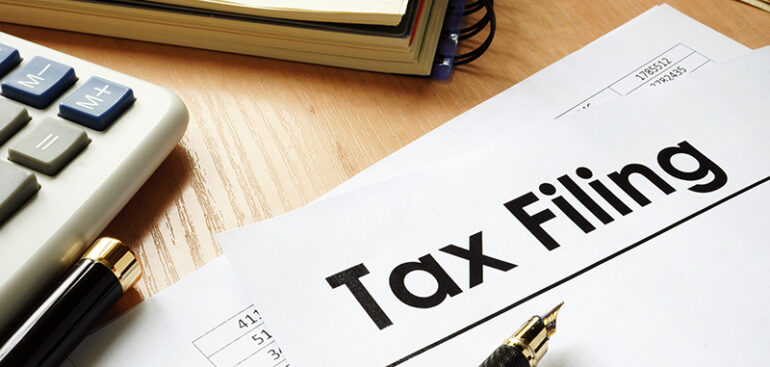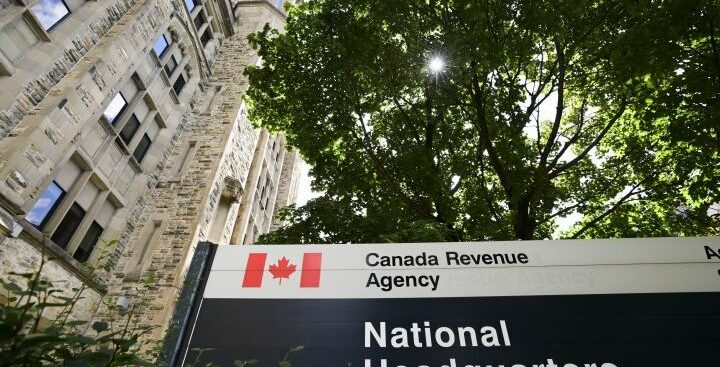Do you earn, spend, or trade cryptocurrency such as Bitcoin? Although your bank doesn’t keep record of these transactions, digital currencies are considered commodities (like oil or gold) by the Canada Revenue Agency (CRA) and Revenu Québec, meaning you’ll need to report your income or losses on your return as you would any other business or investment transaction.
Here are answers to some common questions to help you understand the tax implications of cryptocurrency.
What should I know about reporting my cryptocurrency transactions?
If you used cryptocurrency to buy goods or services, or if you traded one type of digital currency for another (for example, if you exchanged Bitcoin for Litecoin), you’ll need to report these transactions on your return. You’ll need to report the value in Canadian dollars, even if no money was involved.
Depending on the reason for your transactions, you’ll need to report the amount you made (or lost) as business income or as a capital gain or loss.
No matter how you use cryptocurrency, make sure you keep track of:
- The date of your transactions;
- Your receipts for purchasing or exchanging cryptocurrency;
- The value of the cryptocurrency in Canadian dollars at the time of your transaction;
- Your digital wallet records and cryptocurrency addresses;
- A description of the transaction and the person or organization you traded with (even if it’s just their cryptocurrency address);
- The exchange records;
- Any accounting or legal fees you paid; and
- The cost of the software you use to manage your taxes.
Be sure to keep all your documents for at least 6 years – the CRA and Revenu Québec can request to see them at any time if your return is selected for a detailed review.
What’s the difference between business income and capital gains?
If you’re reporting your transactions as business income, you’ll need to report the amount you made (or lost) on your 2020 return by using the Statement of business or professional activities form (T2125 and TP-80). Business income is fully taxable, and you can deduct your business losses against other sources of income to lower the amount of taxes you owe when you file your return.
If you’re reporting your transactions as capital gains or losses, you’ll report the amount on Schedule 3 (and Schedule G, if you’re a resident of Québec). If you sold your cryptocurrency for more than you paid to buy it, you have a capital gain. Similarly, if you sold your cryptocurrency for less than you paid to buy it, you have a capital loss. Capital gains are only 50% taxable. If you have a capital loss, you can claim your losses against your gains to lower the total taxable amount. If you have more losses than gains, you can carry the unused amount forward to lower your taxable amount in a future year.
How do I decide how to report my cryptocurrency transactions?
To decide how to report your cryptocurrency transactions, you’ll need to look at the pattern of how you tend to use it. You’ll need to consider factors such as how often you trade cryptocurrencies and how long the period of time is between when you buy and sell your cryptocurrency.
When should I report my cryptocurrency transactions as capital gains or losses?
If you buy cryptocurrency and keep it for a long period of time, therefore treating it as an investment, you might report your transactions as capital gains or losses.
You’ll report your gains or losses on your return whenever you have a disposition (sale or transfer) of cryptocurrency. For example, you might have a disposition when you:
- Buy goods or services with cryptocurrency;
- Convert cryptocurrency to money;
- Exchange one type of cryptocurrency for another; or
- Make a donation using cryptocurrency.
When should I report my cryptocurrency transactions as business income?
If you’re regularly trading cryptocurrency, holding the currencies for a short period of time, you’re acting the same way as someone in the business of day trading. In this case, you might report your transactions as business income.
Some examples of businesses that involve cryptocurrencies are:
- Cryptocurrency mining;
- Cryptocurrency trading; and
- Cryptocurrency exchanges, including ATMs.
Keep in mind, a single transaction could be considered an adventure in the nature of trade, and therefore business income, especially if it was made in hopes of a quick profit.
If you’re not sure if your transactions were an investment or business income, find an H&R Block office near you and one of our experienced Tax Experts will help you decide. If you’re using our Do It Yourself Tax Software, you can Ask a Tax Expert, too!
If I earned cryptocurrency by mining it, do I need to report it on my return?
If you mined cryptocurrency to sell it for a profit, your transactions are considered business income and you need to report the amount you made (or lost) on your 2020 return.
If you mined cryptocurrency as a hobby, you won’t have to report your activities on your return. However, if you mined cryptocurrency regularly with the intention of selling it for a quick profit, your hobby might actually be considered a business by the CRA and Revenu Québec, meaning you’ll need to report your transactions on your return.
Do I need to charge GST/HST on cryptocurrency transactions?
If your business is registered for a GST/HST number and you normally charge GST/HST on the products or services you provide, you’ll need to charge it on cryptocurrency transactions, too. GST/HST is based on the fair market value at the time of the transaction (or, the highest price in Canadian dollars that the cryptocurrency is worth).


